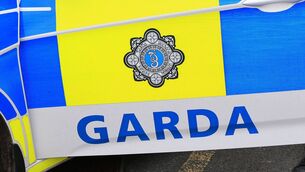The issue of Probate: What happens when a person passes away and their affairs have to be finalised?

Probate is the process in which a deceased person's estate is administered and distributed. Stock image
Probate is a legal process that may need to be completed when a person passes away.
It's the process through which the validity of a will is confirmed.
Perhaps, most significantly, it also gives people entitled by law, the authority to deal with the estate of the person who died.
However, even when probate is not required a person might have to apply for probate in certain circumstances.
According to Courts Services, those situations might include joint ownership among spouses: If the person who died and their spouse owned assets jointly.
In such circumstances those assets usually transfer directly to the surviving spouse without the need for probate (for example: property or joint bank accounts).
If there is money in an account that is not a joint account and the amount is under €20,000, the bank may not require a grant of representation to access the account.
In those situations it might be the case that contact will need to be made with the financial institution to check what they need as each had their own requirements.
In basic terms probate is the process in which a deceased person's estate - meaning all their money, property, and possessions - is administered and distributed. The main purpose of probate is to ensure that the deceased person’s debts are paid and that their remaining assets are transferred to the rightful heirs or beneficiaries in accordance with their will or, if no will exists, according to the laws of intestacy.
When someone dies leaving a valid will, the executor named in that document takes charge of the estate and their first task is to apply for a grant of probate from the court.
This official document gives them the legal authority to handle the deceased’s assets, such as closing bank accounts, selling property, and distributing funds to beneficiaries. If the deceased did not leave a will, the process is similar, but the court appoints an administrator - usually a close relative - who applies for letters of administration instead of probate.
The probate process begins with gathering information about the deceased’s assets and liabilities and that includes identifying property, savings, investments, debts, and any other financial interests.
The executor or administrator must then determine the total value of the estate, which may also require valuing real estate, businesses, or personal belongings. Once that information is compiled, the executor submits it to the relevant probate registry or court, along with the will (if one exists) and the appropriate application forms.
In some cases inheritance tax or estate tax may need to be paid before probate is granted or before assets can be distributed.
The executor is responsible for calculating and paying any tax owed, using funds from the estate. They must also settle any outstanding debts, such as mortgages, credit cards, or utility bills. Only after these obligations have been met can the remaining assets be distributed to the beneficiaries as outlined in the will or by law.






